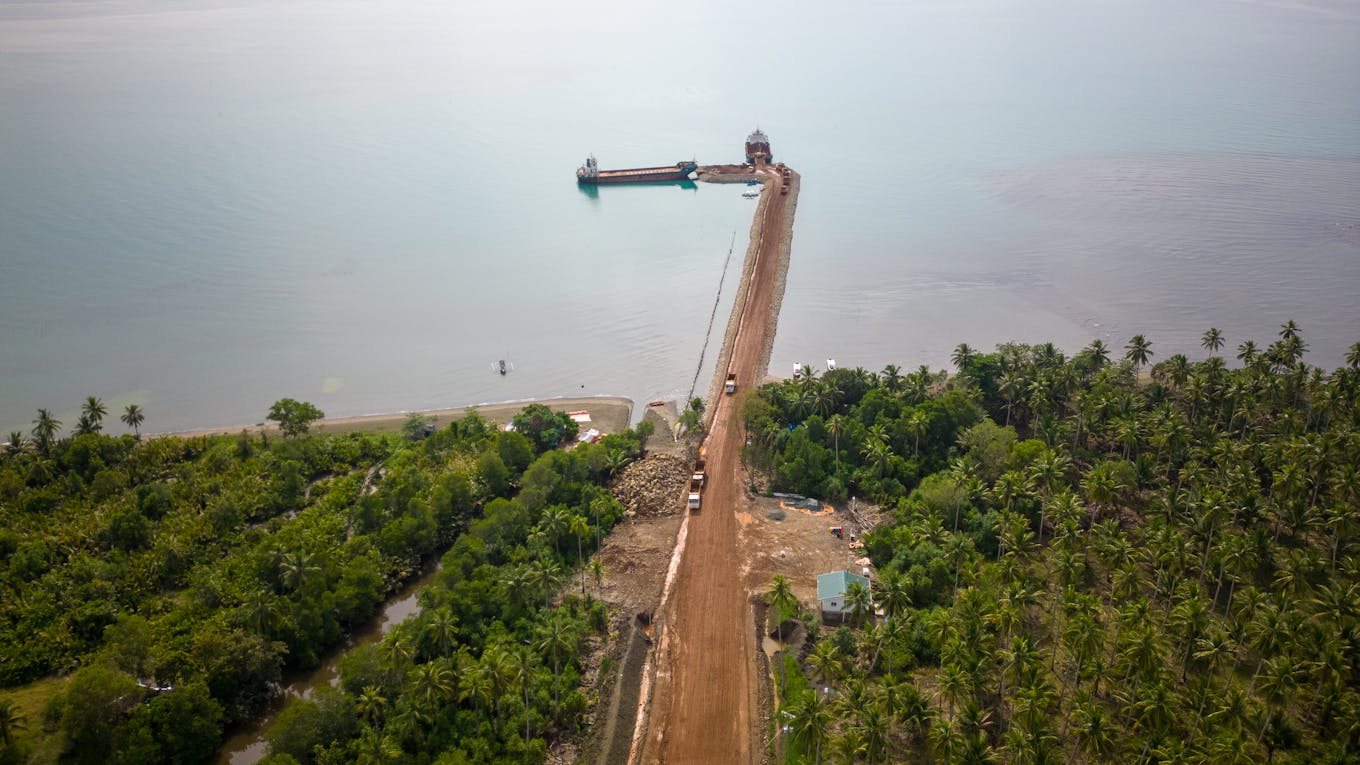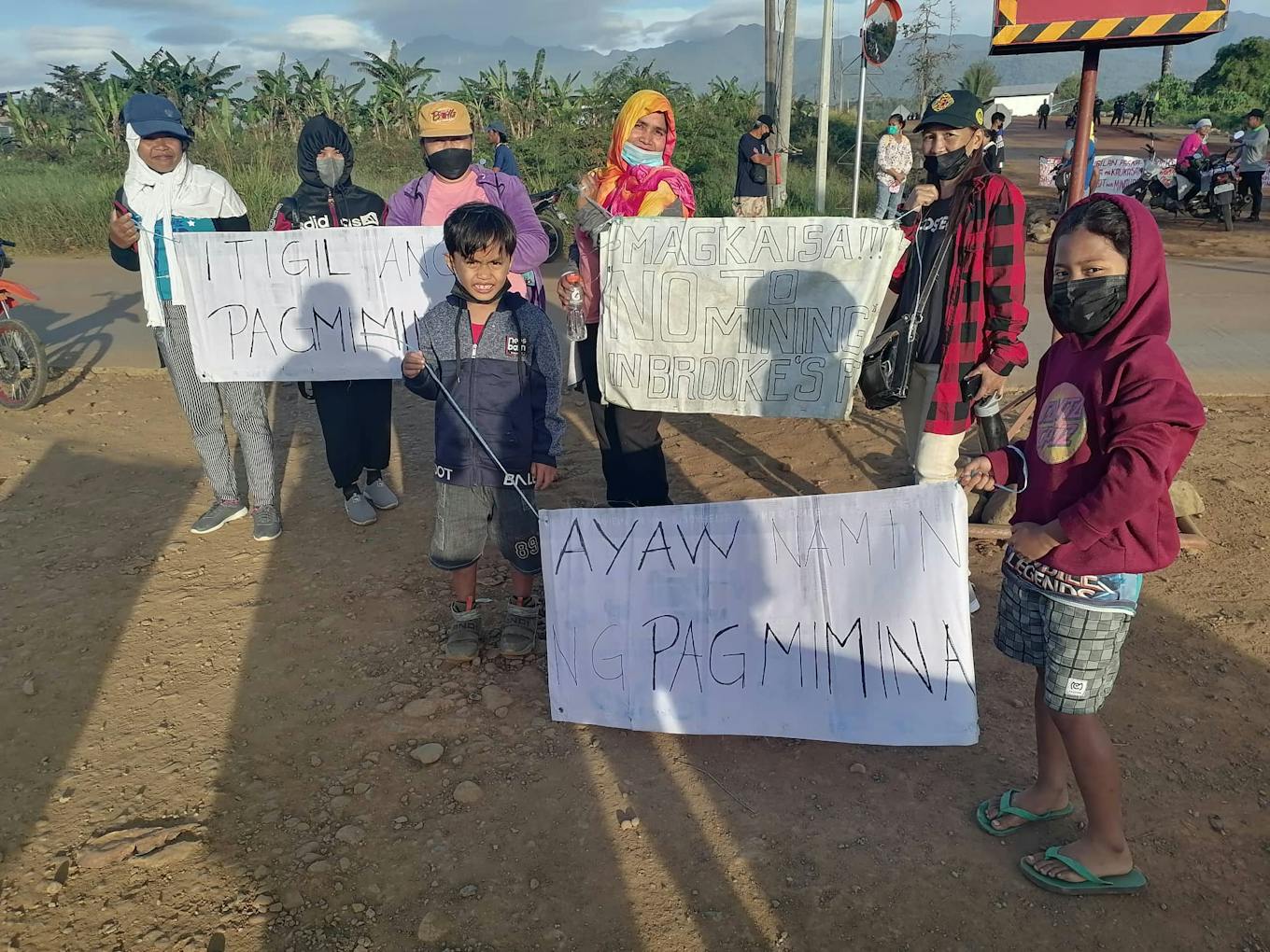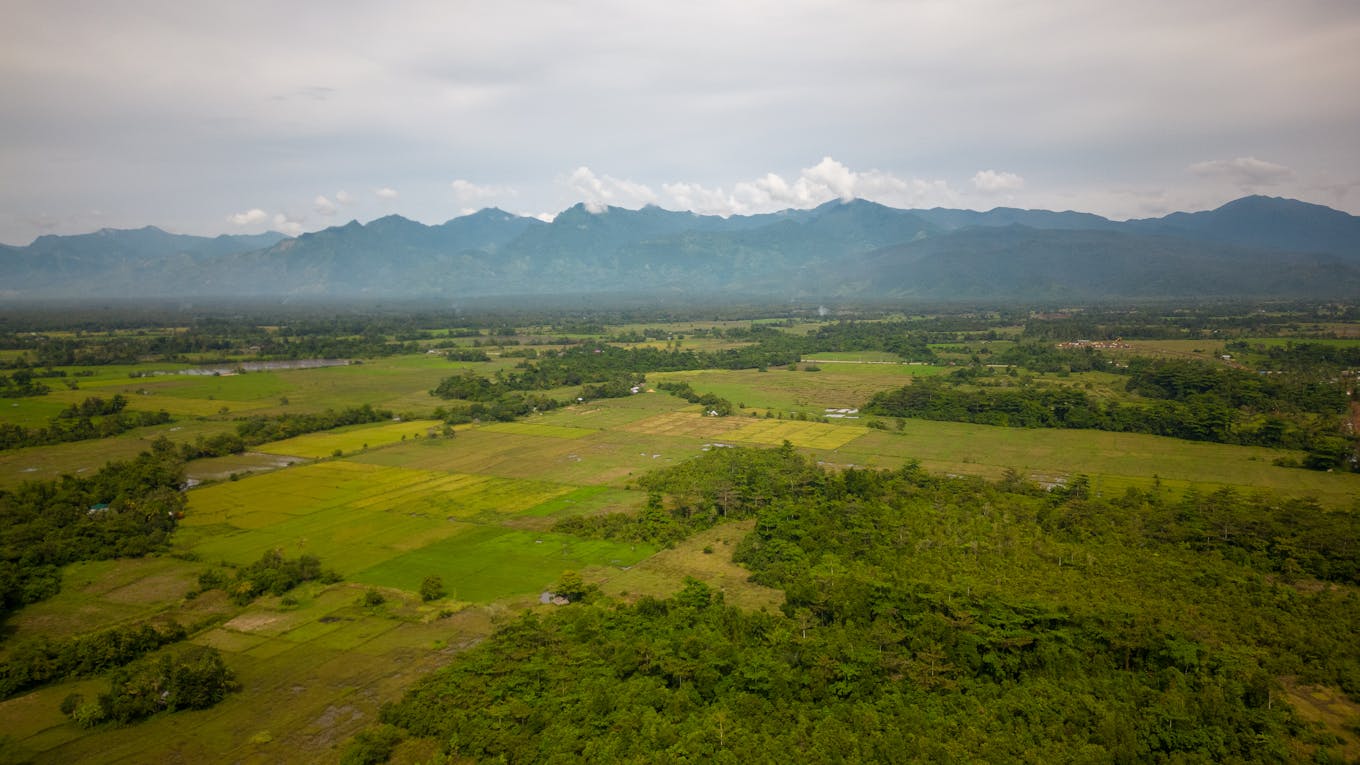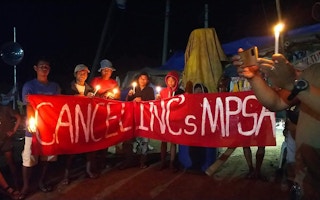It is 11pm in a barangay or town called Maasin in the municipality of Brooke’s Point in Palawan, Philippines, and like most of its residents, Yasmien Tambiling has been struggling to sleep.
Tambiling, 18 years old, is a senior high school student. She and her family have lived in Barangay Maasin all their lives, as it is the ancestral land of the Palaw’an indigenous group to which she belongs. Maasin is considered by its inhabitants as their tropical sanctuary because of its old growth forests, which are made up of trees that have developed over a long period of time.
Tambiling usually goes to bed early to be ready for the two-hour walk to school the following day, but has been unable to do so in the past eight months ever since the start of mining operations of the Ipilan Nickel Corporation (INC), a subsidiary of the country’s second-largest nickel producer, Global Ferronickel Holdings.
The noise from heavy machines like bulldozers, dumpers, and loaders bringing nickel ores keeps her awake. The nickel is extracted from the mountains of Mantalingahan, which was declared a protected area under a presidential proclamation 14 years ago for its “high floral and faunal diversity and endemism.”

Trucks travel through a road that cuts through the forest towards a waiting barge which collects the nickel ore mined by Ipilan Nickel Corp. from Mt Mantalingahan in Barangay Maasin, Brooke’s Point in Palawan. Photo taken in November 2022. Image: Firdaus Firlany/ Eco-Business
The material is then fed into a series of crushers and grinding mills to break down the ore into fine sand-like particles, before it is brought to the waiting barges that take the metal to China.
“We cannot sleep, we feel irritated, but with a mix of fear because we are not used to this. Before the mining started, it has always been quiet in our town,” Tambiling told Eco-Business.
She has just resorted to covering her ears with a pillow and comforting her two younger siblings who also need to sleep for school the next day.
“
We cannot sleep, we feel irritated, but with a mix of fear because we are not used to this. Before the mining started, it has always been quiet in our town.
Yasmien Tambiling, 18 year-old resident, Barangay Maasin, Brooke’s Point, Palawan
Their woes should have been put to rest when INC’s permit to operate expired at the end of 2022 and was not renewed by the mayor’s office. Brooke’s Point mayor Cesareo Benedito, Jr called for the firm to cease operations on 6 February, but this fell on deaf ears. INC likewise could not present a document showing free prior and informed consent (FPIC) that the indigenous people in the area have agreed to the operations, according to anti-mining non-profit Alyansa Tigil Mina.
Two weeks later, Brooke’s Point residents learned about the locals of Sibuyan Island in Romblon setting up a human barricade against Altai Philippines Mining Corporation and succeeded in getting the department of environment and natural resources (DENR) to issue a cease and desist order against the company. The Palaweños decided to follow suit, demanding that INC halt operations.
“If [Sibuyanos] were able to stop the mining because of the barricade, we are praying that the same happens here in Brooke’s Point,” Tambiling said.

Children join their parents in a human barricade protesting operations of Ipilan Nickel Mine. Image: Alyansa Tigil Mina
Her mother and older brother have joined the human barricade that has been holding a round-the-clock vigil since 16 February to prevent trucks from transporting minerals, despite attempts of the mining company to stop the barriers and silence the residents from voicing their protests.
Brooke’s Point vice mayor Mary Jean Feliciano called on the government in a press briefing on Friday to not just issue a cease and desist order against the INC, but cancel its mineral production sharing agreement (MPSA), which gives the company the exclusive right to conduct mining operations within a contract area.
Feliciano was suspended in 2021 as mayor of Brooke’s Point after the ombudsman’s office ruled she had abused her authority by demolishing the mining tenements of INC three years earlier. The following year, she ran for vice mayor and won by a landslide.

A glimpse of Mt Mantalingahan, a protected area where mining activities of Ipilan Nickel Corp overlap with. Image: Firdaus Firlany/ Eco-Business
Lawyers from the Environmental Legal Assistance Center (ELAC) also questioned the previous government approval of INC’s MPSA, when the site overlaps a protected area of old growth forests. Under Palawan’s environmental law, no mining is allowed in such zones considered “areas of maximum protection”, which have uncut forests, home to species and plants endemic to the province.
Meanwhile the government’s Mines and Geosciences Bureau (MGB) said INC had the “exclusive right” to conduct mining operations in its contract area in Brooke’s Point remains valid until April 2025.
“We are awaiting the renewal of our mayor’s permit as we have already submitted the necessary documents and complied with all laws and regulations,” said Alex Arabis, resident mine manager of INC.
Arabis said their company employs over 1,500 people, most of whom are residents of Brooke’s Point. The IPs are also well-represented as they make up 28 per cent of the total workforce. To date, he said INC has spent close to US$1 million that fund various projects to improve the quality of life in Brooke’s Point and nearby areas.
Want more Philippines ESG and sustainability news and views? Subscribe to our Eco-Business Philippines newsletter here.










